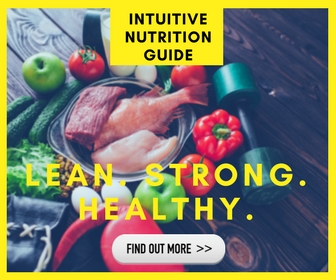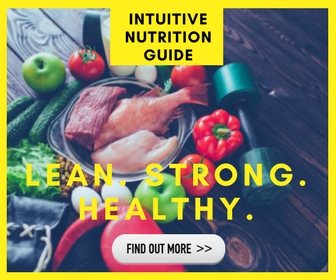
7 Diet and Nutrition Tips for Fitness and Health
Jan 16, 2018 mindpumpDon’t Punish Yourself
The occasional diet slip up happens. You made a mistake. When an unhealthy meal or binge happens, it’s extremely easy to feel ashamed, disappointed, and angry with yourself.
The anger and disappointment often lead to “punishing” ourselves with grueling bouts of exercise and severely restricted calories. This punishment leaves our bodies constantly feeling awful. So awful that we eventually say “screw it” and once again resort to poor food choices and binge eating. And the cycle repeats itself.
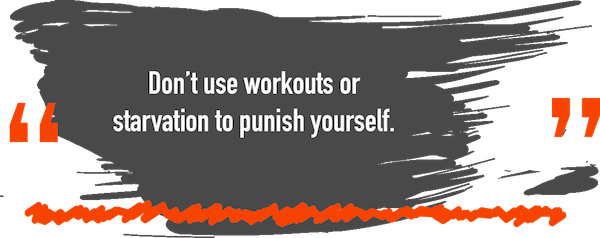
The key to breaking the “binge, punish, repeat” cycle is accepting that you made a mistake, and realizing it’s now in the past. Don’t judge yourself for it. Don’t use workouts or starvation to punish yourself. Accept your mistake, forgive yourself for it, and get back on track with your next meal.
Protein in Moderation
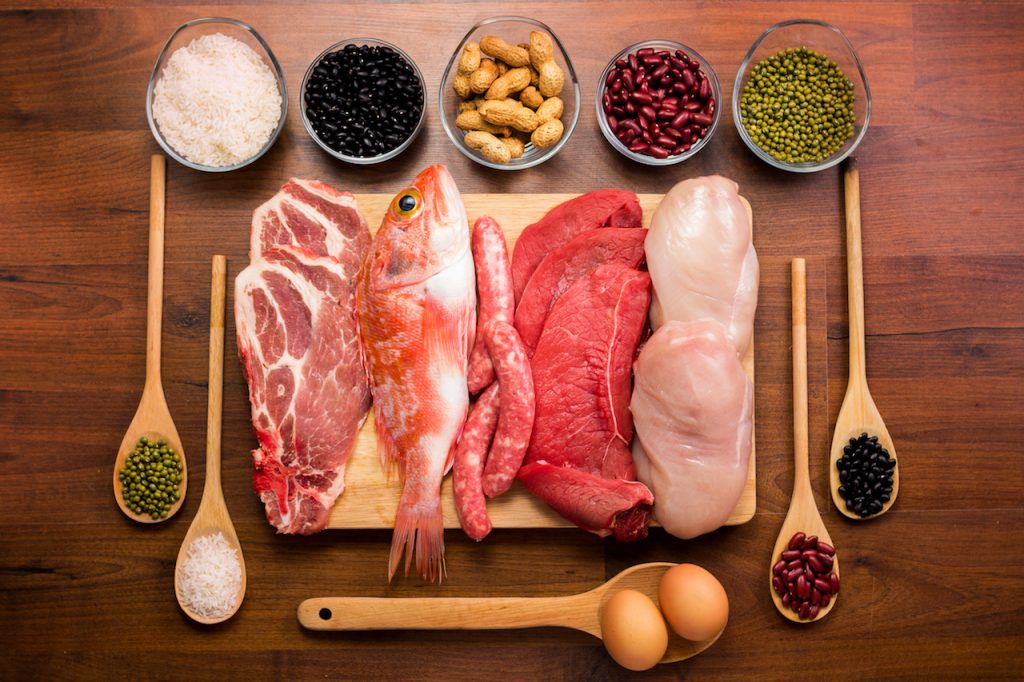
Protein is the most glorified macronutrient, and for good reason. Protein and the accompanying amino acids it supplies are essential to a variety of bodily processes like: building muscle, bone health, and producing hormones and antibodies, just to name a few. If you under consume protein, looking AND feeling healthy will be extremely difficult,
However, the fitness industry’s recent obsession with protein has lead to OVERCONSUMPTION becoming an issue. “Fitness experts” and supplement companies push the average gym goer to eat SICKENING amounts of protein, often recommending up to 2 grams/lb of bodyweight. For a 200 lb man, that’s a daunting 400 grams of protein PER DAY!
These insanely high recommendations are great for selling supplements, but studies show that when it comes to protein, consuming .6-.9 grams/lb of bodyweight is PLENTY for muscle building AND staying healthy. (1)(2)(3)(4)
Consuming adequate protein (.6-.9 grams/lb of bodyweight) is crucial to building muscle. Beyond that, eating more protein DOES NOT lead to more muscle growth.
In the Name of Love
Before eating, take a few moments to ask yourself:
Why am I eating this? Is it because I truly love my body, and want to give it what needs to feel its absolute healthiest and best?
Eat from a place of love for your body. Focus on giving it what it needs for nourishment, and to feel healthy and strong. Creating this sense of awareness with your meals naturally pushes you towards healthy, nutrient dense foods.
Calorie deficit over everything
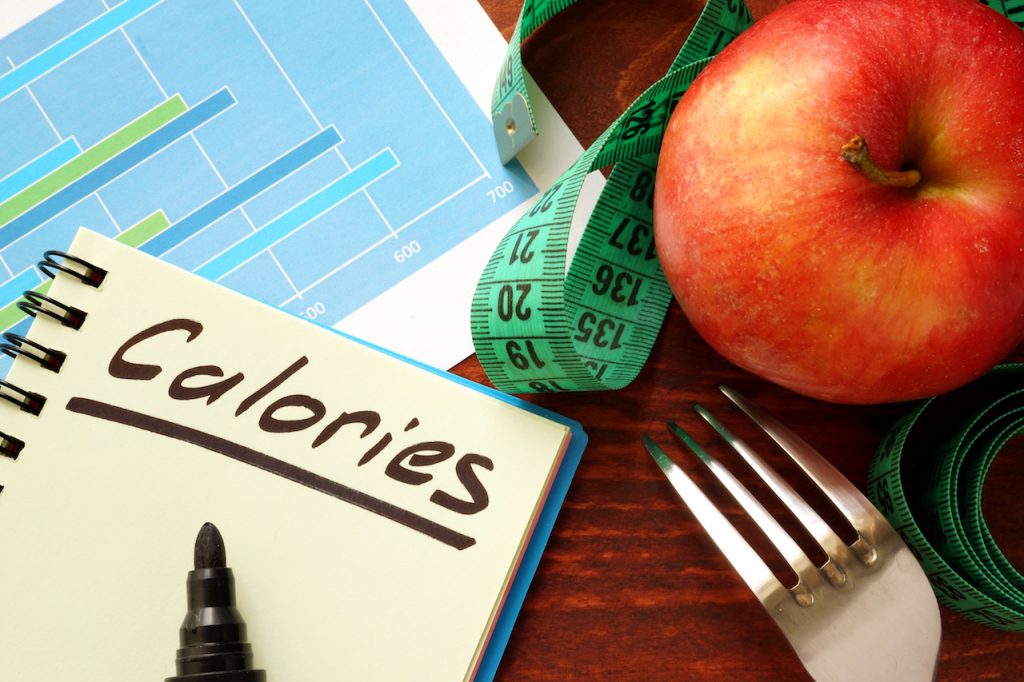
There’s constantly a hot new diet trend that has everyone buzzing. Currently: the ketogenic diet and intermittent fasting, and there’s absolutely nothing wrong with these. If eating mostly fat makes you feel good, then stick with it! If you feel better skipping breakfast, more power to you.
The thing is, we tend to associate fat loss with specific “diets”, not with the ONE underlying principle all successful diets operate on: Creating a calorie deficit.
If you’re losing fat, it’s simply because you’ve created a negative energy balance or a CALORIE DEFICIT. This simply means your body is burning more calorie than it’s taking in.
Not very sexy right? Keto, intermittent fasting, South Beach Diet, etc… It all sounds sexy and magical. Sexy magic diets are easy to market and sell. However, underneath the layers of hype, any diet that WORKS is due to a calorie deficit.
There’s no magical attribute to any diet that will lead to fat loss. Different diets are simply different ways of creating a negative energy balance. By all means, if a certain style of eating makes you feel good, follow it! Just understand there’s no need to overcomplicate things. To lose weight: More calories out than in. To gain weight/muscle: more calories in than out.
Eat when it’s convenient
You’ve probably heard that to lose fat, you need to eat every few hours because it speeds up your metabolism. Although not true, it’s a great way to sell more protein powders and meal replacement shakes!
Backers of this myth often cite something called “the thermic effect of food” or TEF. When we eat food, our bodies require energy to digest and turn it into fuel. When you use this extra energy to convert food to fuel, your body burns more calories than it normally would- this is TEF.
So eating six small meals a day would mean your metabolism is constantly running at a high rate due to TEF right?
TEF is equal to about 10% of calories consumed, no matter meal size. If you eat five meals in a day, at 500 calories each, the TEF of each meal is 50 calories. After five meals, your total TEF is 250 calories. However, if you only ate one massive 2500 calorie meal, the TEF is still 10% of 2500, or STILL 250 calories. So, it literally makes no difference for your metabolism whether you eat one or six meals a day.
Don’t be afraid to take a diet break

The body adapts to all things. If you’ve been eating in a calorie deficit, over time your body will adapt to the lower calories by slowing the metabolism, which in turn slows down fat loss.
You can only stay in a calorie deficit so long before fat loss slows significantly. If, despite being in a considerable calorie deficit for at least 4 weeks, your fat loss has come to a grinding halt, it’s probably time for a diet break.
Diet breaks help negate this by giving the body several days of higher calories. The increased calories, although not enough to cause much fat gain, send the body the signal that it is once again in a well fed state, and can increase the metabolic rate to match the increased calories. It’s also a wonderful mental break, and allows you to hold on to more muscle as you continue with the fat loss process.
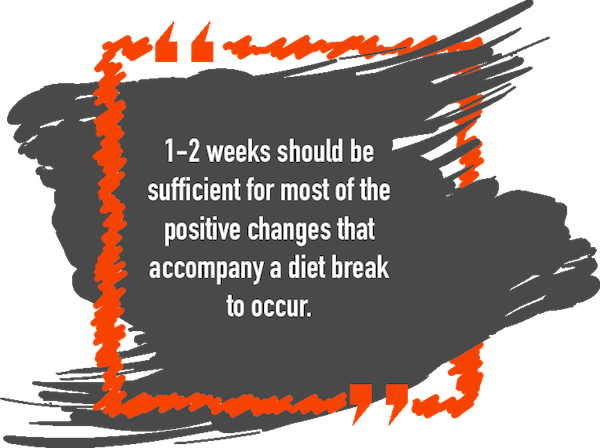
Take your calories back to maintenance levels, or even a slight surplus (within a few hundred calories of maintenance levels). 1-2 weeks should be sufficient for most of the positive changes that accompany a diet break to occur. When you returning to a deficit after the break, you’ll feel mentally rejuvenated, physically stronger, and your metabolism will be FASTER, leading to quicker fat loss.
Don’t Put the Cart Before the Horse
It’s easy to get caught up in minor details, while forgetting to focus on the things that REALLY make a difference. Before you worry about minuscule things; sodium intake, fat loss supplements, etc. make sure you’ve mastered the BIG THINGS, such as a sustained calorie deficit and consistent resistance training.

